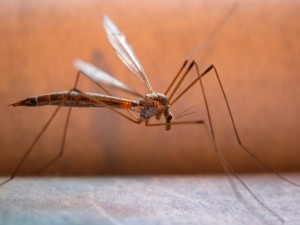Key West Says No to “Robo-Frankenstein Mosquitoes”
 Dengue Fever afflicts millions of people around the world. It is a virus that is spread by a specific mosquito, the Aedes aegypti. Dengue fever can develop into a more serious disease Dengue hemorrhagic fever which can be fatal. Aedes aegyptiis native to Africa, but has spread to other areas including the southern United States.
Dengue Fever afflicts millions of people around the world. It is a virus that is spread by a specific mosquito, the Aedes aegypti. Dengue fever can develop into a more serious disease Dengue hemorrhagic fever which can be fatal. Aedes aegyptiis native to Africa, but has spread to other areas including the southern United States.
Oxitec, a company in Oxford, has genetically engineered the Aedes aegyptimosquito so that any males that mate in the wild will produce non-viable offspring. They believe this modification will reduce the population of this particular disease carrying mosquito and unlike pesticide use, will leave other populations of native mosquitoes intact. Click here for a video about Oxitec and what they do.
But when Oxitec tried to introduce their genetically modified mosquito to Key West, the residents were up in arms. They did not want any part of “Robo-Frankenstein mosquitoes” in their backyard. From an opinion piece in the Miami Herald by David Rejeski and Eleonore Pauwels:
Most Europeans see the United States as the land that embraces genetic engineering. So imagine the surprise when a British firm — Oxitec — ran into the buzz saw of public opinion trying to introduce a genetically modified (GM) mosquito in Key West to eradicate the dreaded Dengue virus.
Within a few weeks of a public meeting to discuss the mosquito release, a petition against the initiative had more than 100,000 signatories. [The entire population of Monroe County, which encompasses The Keys, is only about 75,000.] Key West inhabitants have branded Oxitec mosquitoes with names like “Robo-Frankenstein mosquitoes,” “mutant mosquitoes,” and “Super bugs,” using rhetoric lifted from movies like Jurassic Park and The Hunger Games.
I have always mused on the irony of how many people are fine with genetic engineering techniques like therapeutic cloning or enhancements in humans, but are adamantly opposed to any cloning or genetic modification of plants and animals, even if there is a therapeutic intent, like with Oxitec’s mosquito. I have never been able to wrap my head around this bizarre contradiction.
But Rejeski and Pauwels, I think have touched on the heart of it:
Decades of research on risk perceptions have shown that people differentiate between “voluntary” risks, which we willfully undertake, and “non-voluntary” risks, which are imposed upon us. People will smoke themselves to death while fighting against a nearby factory emitting pollutants.
In this case, Key West inhabitants clearly saw the government and the company imposing their will on the population.
In other words, genetically modifying ourselves and our offspring by choice is one thing, but involuntarily sharing the environment with genetically modified organisms is something else entirely.
Interesting psychology there. It does not bode well for human genetic engineering when all of the concerns about safety seem to be reserved for modifying plants and animals and “choice” is the reigning factor in humans.
Rebecca Taylor is a clinical laboratory specialist in molecular biology, and a practicing pro-life Catholic who writes at the bioethics blog Mary Meets Dolly. She has been writing and speaking about Catholicism and biotechnology for six years and is a regular on Catholic radio.

